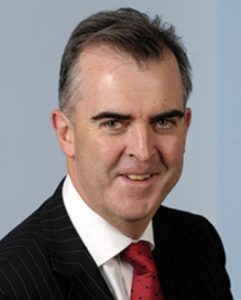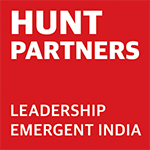Anthony FassoChief Executive Officer – International, AMP Capital
Anthony was appointed to his current position since February 2010. Anthony is responsible for the development of AMP Capital’s strategy with regard to strategic alliances, joint ventures, sales, client relationships and the delivery of investment solutions across the globe. Anthony is also a member of the AMP Capital Leadership Team, the group responsible for delivering on AMP Capital’s business strategy.
Anthony joined the financial services industry in 1983 and has spent the majority of this time in funds management in Asia Pacific. His most recent position was Chief Executive Officer of AXA Rosenberg Asia Pacific and AXA Investment Managers Asia Pacific, where he was responsible for $40 billion in assets under management and successfully set up joint ventures in China and India. Prior to this he was a Director with Deutsche in Australia. As Chief Executive Officer and Head of Institutional Asset Management of Bank Julius Baer & Co Limited in Hong Kong, he built the institutional asset management sales and marketing function in the region.
Anthony has also held several senior positions at Bankers Trust Funds Management in Asia where he was Regional CEO. Prior to this Anthony had eleven years with Bankers Trust in Australia.
Anthony is Member of The Hong Kong Institute of Directors, the Australian Institute of Company Directors and Asia Society Hong Kong, as well as a Director of Australia-Korea Business Council. Anthony is also a Member of the Hong Kong Securities Institute.

1. What was the mandate given to you by the Board when you took over in your role?
To grow our business outside of our home market of australia and to do joint ventures in funds management in japan and china.
2. How much of that has been achieved? What were the challenges faced?
In the 6 years with amp capital we have formed a strategic shareholding relationship with mitsubishi trust bank; we have also done 2 joint ventures with china life insurance in china in the past 2 years. Furthermore, our client numbers in the norther hemisphere have grown at a rapid rate in recent years. The challenges faced were the growing pains of managing within a tight budget.
3. How do you respond to the needs of changing market scenario (with an example)?
A recent example would the impact to our business in japan 3 years ago to cope with the sudden change of positive sentiment around the abenomics policies. We had to quickly get our investment and product teams to design appropriate products.
4. How has the market evolved in the last few years?
Markets globally have been impacted by cheap monetary policy and the impacts of tht on asset prices. Another key challenge for global asset managers is re-regulation of all aspects of the financial system: whether it be kyc to higher capital charges such as solvency ii or increased disclosure to investors. The challenge is that all countries have significantly different levels of regulation.
5. What are the key challenges your organization is facing currently? And what are the steps you are taking?
The big item on global agendas is cyber risks and talent retention. The other key item on our agenda is female diversity at the mid to higher levels of the company.
6. How have the changes in technology/globalization/economy affected your sector?
There is a lot of discussion about fintech. A key question is there is no one definition of what it is. We have had financial disruption for centuries, but today the choices of how to transact and invest are endless. Ths costs of technologies for financial institutions have come down, however companies have to be careful not to overspend as the rate of obsolescence of that technology is high.
7. What is your talent strategy? How do you draw the balance between home grown vs lateral hiring at the leadership level?
We actively recruit at a graduate level and then each department hires tlent 2 to 5 years post graduation as well. We do have a strong emphasis of growing our own talent
8. How does your organization identify and develop future leaders?
Mentoring, formally and informally; we find the use of getting key staff to work on one off projects outside of their normal scope quite useful too. I am also a big fan of staff doing institute of director courses
9. What are the 3 key aspects you look at when you hire your direct reports?
Diversity; passion and languages.
10.How does the growth prospect of your organization look like for the next 12-24 months?
We have been on a strong growth phase over the past 5 years and we know that the next 5 year plan will see us delivering strong growth again.
11. Will there be any significant change in the market dynamics in next few years? If so, what steps are you taking for the same?
The market dynamics are always changing and the trick is trying to predict it or if not, quickly adapting to it. To do this you need seasoned staff with a range of eq and iq skills and with a global mindset. Learn what is happening in other markets and consider who that can be useful in your key markets. An example of that for us is that japanese investors have been investing money to save for their retirement at zero interest rates for >20 years. What other investment options have they looked at to give them a return above zero? Use those insights to adapat back into your key markets where it is only in recent years that investors there have seen very low interest rates.
12. In a world full of volatility, Uncertainty, complexity & Ambiguity (VUCA), innovation has become one of the most important factor to transform a crisis into an opportunity. How do you promote Innovation?
For me, innovation inside a large company can be tricky. Again, having staff with diverse backgrounds is critical. What i believe is even more critical is having a safe environment internally so that they can fail. Not all great inventions get taken up. You need to say to the staff: go and develop some interesting ideas, solutions, products. If they work great, but also learn from situations that do not work too.
13. How Indian leaders can become Global Leaders?
India punches well above its weight in global leaders. They are very globally minded; driven, articulate and have no issues with being job mobile. Indians generally talk a big game, but often they do not have enough self-confidence.
14. What are the shortcomings and strengths of Indian Leaders?
Shortcomings: as above, occasions of self-doubt; sometimes too cocky. Strengths: diverse thinking skills: great with numbers to big picture thinking and strong orators. Excellent networkers and a drive to innovate.
15. What are the 3 most pivotal moments in your career that you either learned from and/or that got you where you are today?
My father had a small trucking company. He worked hard so that we could go to good schools. We worked with him as kids and i was determined not to see the sacrifices my parents made go to waste by me too becoming a truck driver. Another key moment for me was being offered to opportunity to move from melbourne to hk in 1994. I was concerned about whether i could live outside of australia and do a new job in a foreign region well. 21 years later i am still there! The final reflection for me is to understand what are drivers of the people you work with; also can you learn from the local cultures where you travel to on business. So don’t always come with a western mindset. Learn the best of what asian cultures has to offer and use that when you are doing business in that country.
16. What key lessons have you learnt from any mistakes, if any, made in the past? How would you do it differently?
Life is about making mistakes: you just have to make more good decisions than bad ones. Keep your strike rate above 50 and you will be ok.
17. How do you define & practice leadership?
Leadership is being genuine and accessible to your staff and to have constant lines of communication with them. This is also hard in global organisations, so you need to visit regularly, share your vision, lead by example and importantly make decisions. Again you are not going to always get them right, but don’t be spooked by the power of decision making: just do it.
